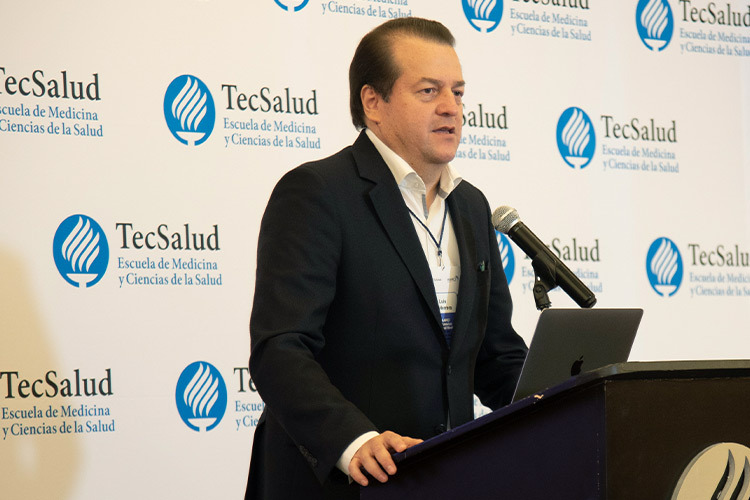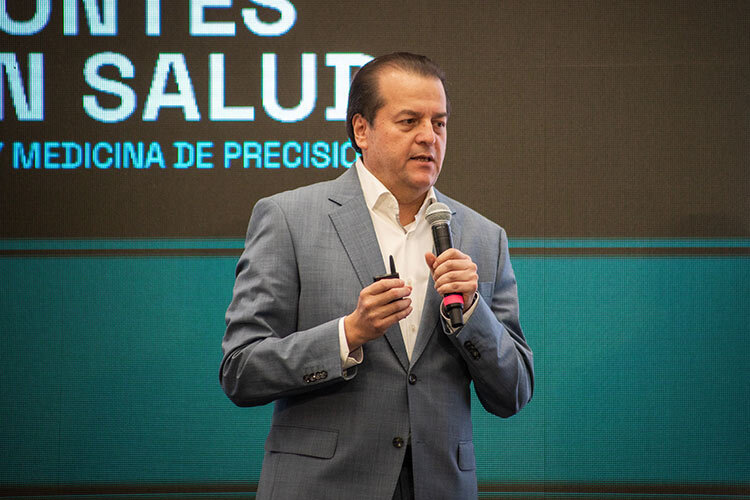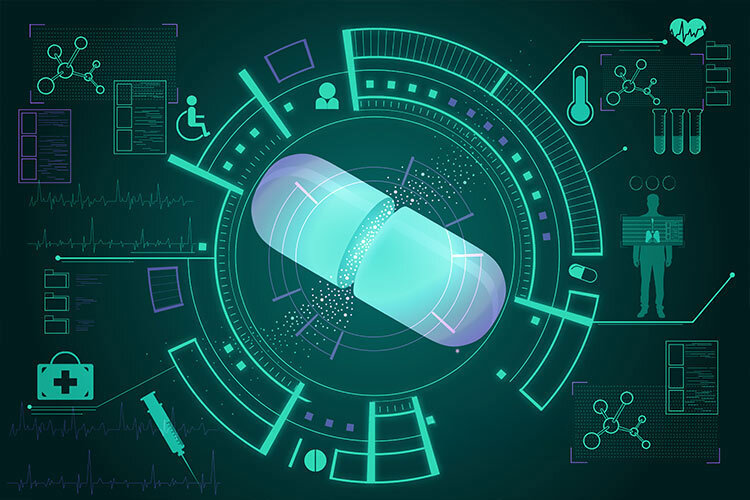There are three essential aspects to ensure that even more health professionals and scientists stand out on the world stage in future: investigation, innovation, and internationalization.
Luis Alonso Herrera, Dean of the School of Medicine and Health Sciences, explained how to improve these systems during the event The Future Role of Academic Health Centers: Leadership and Growth, co-organized by the Association of Academic Health Centers International (AAHCI).
He also mentioned the need to provide integrated education programs, invest in research, and even promote the use of innovative technologies such as Artificial Intelligence and the use of genomic data to create alternatives for precision medical treatment, which is created specifically for each individual patient.
“Our teachers have to educate themselves in these areas, which is a major challenge. Although our training is focused on treating and attending to diseases, it’s something that’s happening in other countries and we should be doing it,” he explained.
Improving our health systems
The dean explained the importance of focusing on specific research areas, seeking to specialize in these, and promoting research within them to attract experts, not only through salaries but also by developing specialized groups.
This involves providing them with recourses and the necessary support to conduct their research, a crucial aspect for the success and growth of medical institutions.
Moreover, investment in infrastructure, resources, and facilities fosters the attraction of international talent, not only from Latin America but also from other regions of the world. When combined with the provision of integrated education programs, this also attracts more talented students and opens spaces for students from other countries.
Furthermore, it is crucial to develop an integrated system of innovation by creating initiatives that make a real impact on society.
Herrera mentioned the importance of not only innovating in the area of education, but also creating an environment in which ethics, humanism, and other values exist, with an approach centered around patients and the community.
Another of the significant aspects in this ecosystem is the importance of communicating innovation, investigation, and internationalization correctly, not only to the medical community but also to society in general, seeking both their interest and support for these initiatives.
Strategies for improving health systems in Mexico and LATAM
During the meeting, the director emphasized the importance of investing in investigation, innovation, and internationalization to improve access to medical treatments in Latin America.
He said this was because the region does not focus as much as others on developing new treatments, which is why guaranteeing better access to those that already exist is important.
For instance, he mentioned that patients with diseases and conditions such as diabetes and cancer sometimes do not have optimal access to therapies due to their high cost.
“This is −probably− the costliest area in research. We aren’t thinking about creating medicines but about better access to them,” he says.
These patients mainly have access to basic medicines that allow them to control the disease, such as chemotherapy and radiotherapy in the case of cancer, while immunotherapy (an innovative treatment against different types of cancer) is out of reach for most of them.
Due to this situation, Herrera highlighted the importance of generating new models of medical education, such as nutrition laboratories in which students can create and improve diet plans that focus on preventing and treating diseases or gymnasiums where specific therapies are developed for each patient.
“The idea of doing research is so that we can focus on prevention. If we want to save money and obtain better results, the best thing to do is focus on prevention instead of treatment,” he added.
Precision medicine
Another point he discussed was the development of innovative medicines and treatments for each patient, using Artificial Intelligence and genomic data from the population to promote so-called precision medicine.
Herrera explained that this type of medicine is based on knowledge of each individual’s genetic, environmental, and lifestyle characteristics to make treatments even more personalized.
Efforts in this area are becoming increasingly common around the world, such as one project in China to obtain the genetic data of more than one million people or the Origen Project in Mexico that aims to analyze 100,000 people and their DNA.
Through these analyses, doctors can identify the best treatments and most suitable approaches for each patient by considering their unique characteristics, avoiding unnecessary treatments, and maximizing the medical benefits.
As there is a great deal of genetic diversity in Latin America, which has an impact on treatments and predisposition to diseases, knowing the DNA profiles of different populations will be essential to personalizing prevention, diagnosis, and treatment.
Herrera stresses the potential of Artificial Intelligence for evaluating the large amount of data involved in genetic analysis, which would enable analysis of large volumes of information, identify patterns, and predict results to improve clinical decision making.
This approach not only holds the potential to improve patients’ treatments and quality of life but may also reduce the costs associated with less effective or ineffective treatments.
However, he adds that it is important to have solid infrastructure and reliable databases that are treated ethically and professionally, which would enable international collaborations to be established for sharing resources and good practices.


















